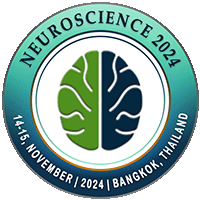
Jang-Han Lee
Chung-Ang University, South KoreaTitle: The effect of feedback in attention training on attention bias to threat in individuals with sluggish cognitive tempo
Abstract
This study was conducted to identify the characteristics of attentional bias of individuals with Sluggish Cognitive Tempo (SCT) and how Attention Bias to Threat (ABT) changes when feedback is provided to them in attention training programs using VR technology. First, a dot probe task was conducted to confirm the degree of emotional bias of the sampled SCT feedback group and SCT no feedback group, and healthy control group. To enhance SCT's ability to disengage, a VR-based feedback attention training program was developed. Finally, a dot probe task was again conducted to measure the change in the emotional bias of individuals with SCT tendency. As a result of examining the emotional bias through the dot probe task before the training program, the SCT groups showed a higher ABT than the healthy control group. As a result of comparing the reaction times of each phase of the attention training program, when VR attention training was performed on SCT, the reaction time of their disengage was significantly reduced under the conditions with feedback. In addition, it was confirmed that the ABT of the SCT group that received feedback from the dot probe task, which was retest after all intervention was completed, was significantly reduced. This study identifies ABT associated with internalizing symptoms of SCT and suggests that ABT can be reduced through attention training.
Biography
Jang-Han Lee is a certified clinical psychologist and professor of Department of Psychology at Chung-Ang University. He is one of the few researchers in South Korea to have studied eyewitness memory and lie detection, as well as one of the few researchers in the world to use virtual reality (VR) in the field of eyewitness memory and mental disorders (attentional bias, eating behaviors, addiction etc.). He has been awarded a Lifetime Achievement Award at the 20th Cyberpsychology, Cybertherapy & Social Networking Conference in 2015 and is on the Editorial Board at Cyberpsychology, Behavior, & Social Networking journal since 2014. He is also well-connected with legal practitioners. He plays numerous roles in the police, prosecution investigation, and court trials as National Police Agency's Scientific Investigation Advisory Committee (2017~currently) and Scientific Investigation Advisory Committee member of the Prosecutor's Office (2010~currently) to increase the social contribution in the field of psychology. For the convergence of research and practice, he has been studying the effectiveness and utilization of lie detection with the Psychological Analysis Office of the Prosecutor’s Office for the past decade.

